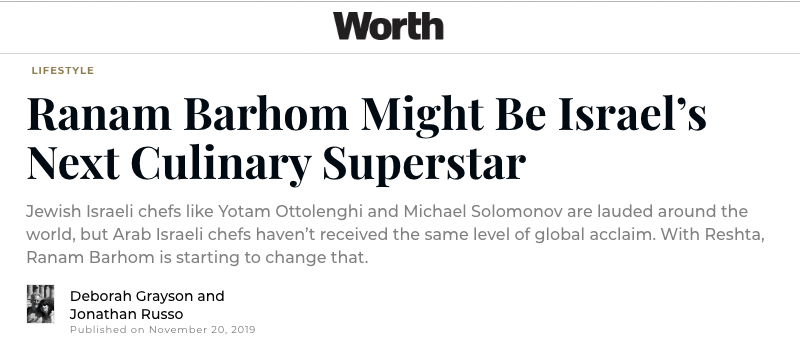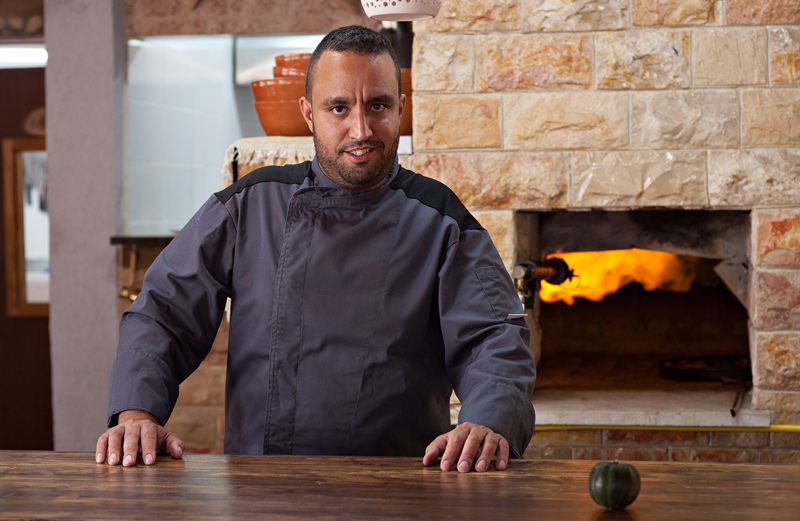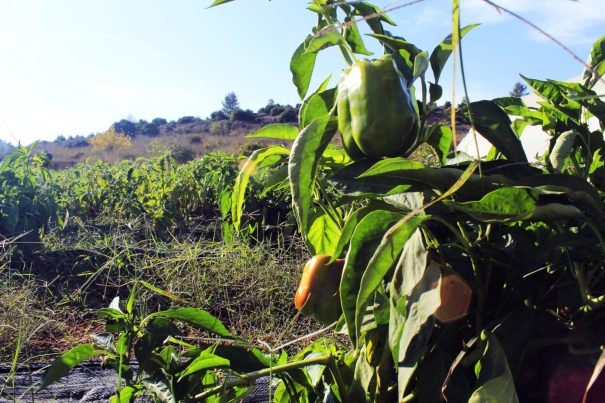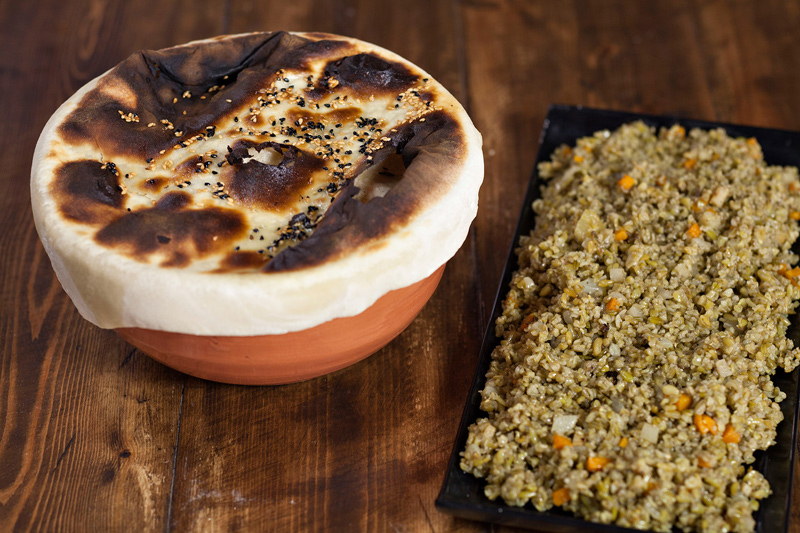Editor’s note: Interested in the exploring the gastronomic revolution in Israel? Join Canadian Friends of Hebrew University on a unique culinary and wine journey through Israel – From Cork To Fork – happening May 4-10, 2020. Visit www.fromcorktofork.com for full details, itinerary, and registration.


You’d have to be living under a slow-cooker not to be aware of the vibrant, continent-conquering new Israeli cuisine. Yotam Ottolenghi, with his six popular restaurants in London, seven bestselling cookbooks and a New York Times column, might have been the first ambassador. But today, Americans can dine at Michael Solomonov’s James Beard Award-winning Zahav in Philadelphia. Eyal Shani has cloned his Tel Aviv restaurant Miznon to Paris, Vienna, Melbourne and New York.

Still, all is not sweet in the land of milk and honey. These chefs are all Jewish Israelis, and there are unrecognized Arab Israeli chefs who argue that the staples of their cuisine—shakshuka, hummus and falafel—have been appropriated. “Many chefs, including myself, are inspired to use traditional Arab cooking methods,” says Amos Sion, influential Jewish chef/owner of Helena in Caesarea, Israel, who goes out of his way to integrate Arab ingredients into his cuisine. “In this way, we create continuity and pay homage to local traditions. While building the future, it is essential to respect the past.”
In the meantime, some Arab chefs are moving beyond these familiar dishes into territory long known to them but little-known to the rest of the world as a way to differentiate themselves.
In the village of Ein Rafa, home of the groundbreaking Arabic Jewish restaurant Majda, we found chef/owner Ranam Barhom’s Reshta. Two years old, it’s already on many Israelis’ radar. Local press, TV, social media and Israeli Slow Food have endorsed him, the latter, he told us, “because of my farm-to-table commitment.” It’s hard to get one of the 250 weekend reservations.

What’s behind Reshta’s success? Maybe it’s because Ranam grows his own vegetables (a la Blue Hill at Stone Barns) on adjacent land handed down to him by generations of his family. Maybe it’s because he’s so committed to the heritage of his food that he went to the West Bank to learn to make his own freekeh, a complicated process where wheat is harvested green and smoked. Maybe it’s because he’s meticulously adapting centuries-old family recipes for today’s sophisticated palates.
Reshta didn’t happen overnight. Before school, Barhom had a long history of working in restaurants, starting with an Indian restaurant (unusual in Israel) at age 17. Twelve years later and a graduate from the Hebrew University’s Master Chef program, “I had 300 head of sheep, was making cheese, and growing and preserving vegetables,” he says. “I wanted to do more.”
Barhom spent the next six years formulating a culinary vision, testing recipes and building the restaurant on land owned by his family, literally in the shadow of the town’s mosque. He called it Reshta because, as a youth, he had rejected Arabic cuisine, preferring schnitzel, fries and fast food. “Reshta,” he explained, “is a traditional Arabic dish made from lentils, homemade pasta, sumac, onions and olive oil. It signified to me that I was coming back home.”
Barhom, now 36, smiles often. Given his gentle countenance and infectious enthusiasm, it’s easy to see why his original staff still work for him. For example, Armine Mirzoyan, hired as a waitress and now the manager, is an Armenian Christian. She admits her Arabic “was terrible,” but the staff made her feel like family anyway. Armine is Barhom’s biggest fan, lauding his “multi-faceted mind and culinary skills.”
He’s also a man with a mission—to start a conversation, using food as the catalyst. “Food was the first thing that made me proud of being Arabic,” he says. “I have a hard time telling my story, but when I feed people, I’m starting a conversation with them. They come into the kitchen and thank me. Then there’s a dialogue between us.”
Another aspect of Barhom’s dialogue happens at the table. In Arabic culture, food is served family style. “I wanted to come as close as I could to duplicating this,” he says. “I serve large portions so that my customers share. It forges bonds as two hands reach for the food and touch.”
The nearby Arab town of Abu Ghosh is known for its ubiquitous tahini, babaganoush and other traditional dishes. “I didn’t want my place to be another hummus joint,” Barhom says. “I wanted to introduce diners to dishes they’re not familiar with.”

Among the menu’s many highlights are musakhan (half a sumac-scented chicken so moist it melted into the fluffy homemade pita it sat upon), fukhara, pastry-topped earthenware filled with beef and root vegetables from Barhom’s garden, and sienia, lamb patties on a bed of roasted vegetables.
Starting a small, off-the-beaten-path restaurant is an uphill battle, so Barhom was thrilled when a party of five made a reservation for opening night. Several more requests came in, including the owners/chefs at Majda, which confused him because his opening was on a Thursday, a busy night for Majda, his “competitor.” Turned out they had learned of his opening, closed their restaurant for the night and directed all of their diners to eat at Reshta.
Two years later, Barhom has received so much positive word of mouth that bestselling Israeli cookbook author Adeena Sussman has Reshta on her “must try” list. “Arab cuisine has always been an essential cornerstone of Israeli food, and it’s wonderful—and important—to see it getting its due,” she says. “Every visitor to Israel should make a point of eating at some of Israel’s wonderful Arab and Palestinian restaurants. It’s culinary and commercial coexistence on the plate.”
In a country where everyone fights over everything, Reshta is an oasis of cultural cooperation, tranquility and, of course, delicious food. It’s time for an Arab Israeli superstar chef. We’re betting on Ranam Barhom.